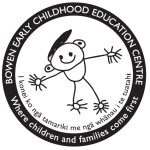Our teachers take a family-based approach to the care and education of our kids and our kids are active participants in their own learning and development. That means we pay attention to their individual motivations, interests, and needs, and provide a positive and encouraging environment for them to grow and develop.
An important part of our Philosophy is the Māori concept of tuakana – teina, which values reciprocal learning relationships. This means we don’t segregate our kids by age but instead encourage them to interact with and learn from each other in a safe environment.
Children as active participants in their learning and development
We see children as active participants in their learning and development and we pay particular attention to their individual motivation, interests, and needs. Our teachers understand that each child is unique and so they will provide unhurried time, a positive environment, and encouragement to allow children to grow and develop at their own pace.
Building a positive, responsive, and safe environment
We value positive, reciprocal, and responsive relationships between all members of our learning community (children, family/whānau, and teachers). These relationships are essential to learning and development.
We foster an environment where children feel safe and loved, and where they can build and maintain their confidence, enabling them to explore and contribute and thus become life-long, capable, and competent learners.
Tuakana – teina
We value the Māori learning concept of tuakana – teina, which emphasises reciprocal relationships wherein children and teachers play both a teaching and learning role within the learning community. Young children can learn from older children and vice versa, accentuating the importance of each child’s value and contribution.
Holistic approach
We view learning and development from a holistic perspective, acknowledging children’s cognitive, emotional, spiritual, physical, and cultural well-being, which is essential for a positive and constructive learning environment.
We provide a stimulating learning environment which achieves a balance between planned and spontaneous play. We base programme planning on an emergent curriculum which focuses on the children’s interests and a value-based curriculum which focuses on the development of pro-social skills.
Respect
We respect the cultures, beliefs, values, and views of all children, parents, whānau, and teachers, and use clear and honest communication with children and their families.
Learning through play
We place importance on, and highlight, the value play has in building important foundation skills, such as emergent literacy and numeracy, through the fostering of positive dispositions toward learning, such as resilience, persistence, and curiosity.
